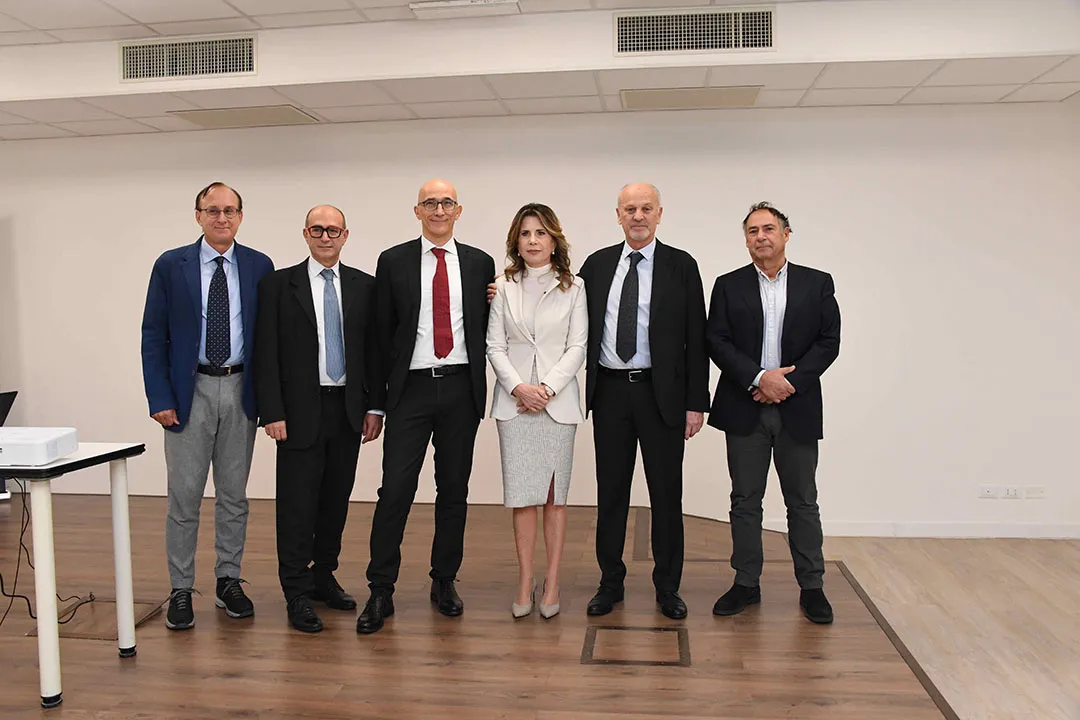An innovative Territorial Telemedicine project was presented on Monday 20 November at the Casa di Cura Villa Garda of the GHC Group, the first to mark the collaboration in the Veneto Region between public and private-accredited operators on public and private accredited telemedicine and remote reporting projects.
The agreement in fact provides for the activation of an "Integrated Care Network", based on the synergistic coordination between the Casa di Cura Villa Garda and the ULSS 9 Scaligera for the remote reporting of non-self-sufficient patients in Garda and neighboring municipalities for a duration of 2 years , extendable.
The project will allow fully telematic management of services. The request for an electrocardiogram (ECG) is made by General Practitioners who practice in Garda to patients who need an ECG at home. The exam is then carried out (within 48 hours) by the Integrated Home Care (ADI) nurses and subsequently reported by the Specialists present in the Casa di Cura Villa Garda, who will make it available electronically to the requesting doctor.
A project financed thanks to the resources that the Villa Garda obtained as the winning structure of the first edition of the "Raffaele Garofalo" Award for Sustainability 2022, established by GHC and aimed at all the Group's structures. Resources that the nursing home wanted to allocate to the purchase of three portable electrocardiographs (including the related consumables) to be given free of charge to the staff of the ADI of District 4 and to offer the necessary medical professionals in the cardiology field for the subsequent reporting, without charges for Local Health Authority 9.
The implementation of the project will allow us to: implement home healthcare services; support general practitioners in assisting patients who are bedridden or cannot be transported by ordinary means; reduce waiting lists; reduce the costs of the ambulance transport service; reduce waiting times for carrying out particular services.
Pietro Girardi, General Director of the ULSS 9 Scaligera Company, underlined three salient points of the Telemedicine Project: «In this complex moment for healthcare we are witnessing the progressive aging of the population. Older or frail people often live far from large urban centers where services are concentrated. This project, first of all, sees the hospital getting closer to the territory. Second point: it is a perfect public-private symbiosis, with the private sector promoting activities free of charge; an integration promoted by telemedicine which increasingly pushes us to develop organizational models of this type to decentralize services and make them even more accessible to citizens. Third point, more personal: the Project is financed thanks to the Raffaele Garofalo Award which commemorates a great figure of surgeon and entrepreneur, the father of the CEO Maria Laura Garofalo to whom we thank."
Maria Laura Garofalo, CEO of the GHC Group, commented: «Telemedicine represents the future of healthcare and this type of collaboration between the public and accredited private sector is certainly a fundamental step to guarantee an adequate healthcare offer also to individuals more fragile and not self-sufficient. Furthermore, I am proud that the project was born from a Group initiative linked to the theme of sustainability on which we have always paid the utmost attention, confirmed by the recent raising of the ESG Standard Ethics rating to Investment Grade "EE+" level: "Very Strong"".
Present at the presentation of the Project were the lawyer. Cav. Maria Laura Garofalo, CEO of the GHC Group; Dr. Pietro Girardi, General Director of the ULSS 9 Scaligera Company; Dr. Mario Baldelli, General Director of the Villa Garda Nursing Home; Dr. Gianni Destro, Head of the Cardiomotor Department of the Villa Garda Nursing Home; and Dr. Gabriele La Rosa, Director of District 4 ULSS 9 Scaligera.
The constant increase in the average age of the Italian population is accompanied by a parallel increase in age-related chronic pathologies and a progressive increase in the population with reduced self-sufficiency, ability to walk and access to healthcare facilities. This segment of the population, with a few exceptions, constitutes the target of the ADI service.
Telemedicine, in particular for patients in the care of the ADI, facilitates the performance of certain specialist services with tangible advantages both for the user himself and for the healthcare facilities with a reduction in waiting times, as well as allowing a reduction in the cost of expenses relating to the transport of sick people.
